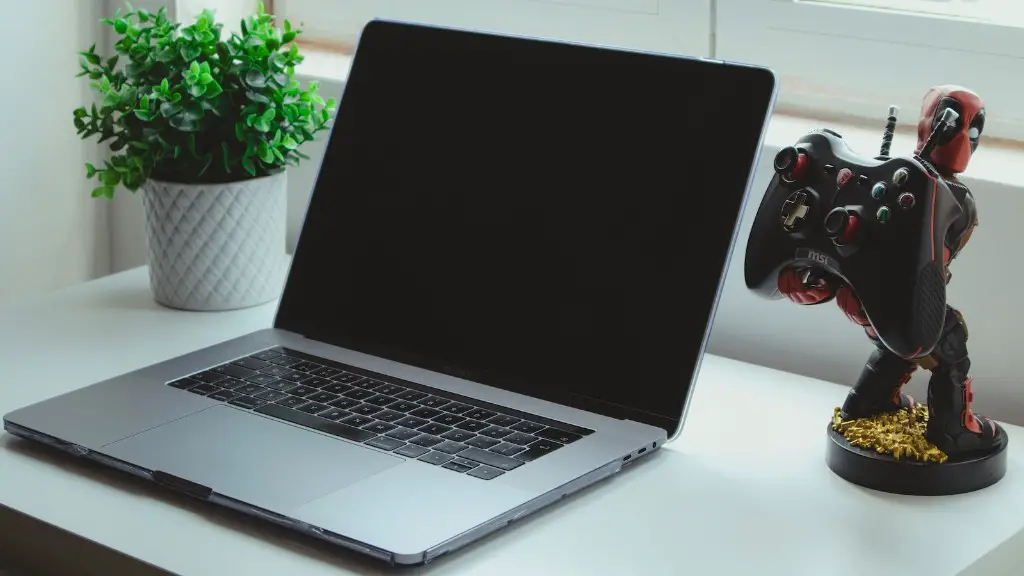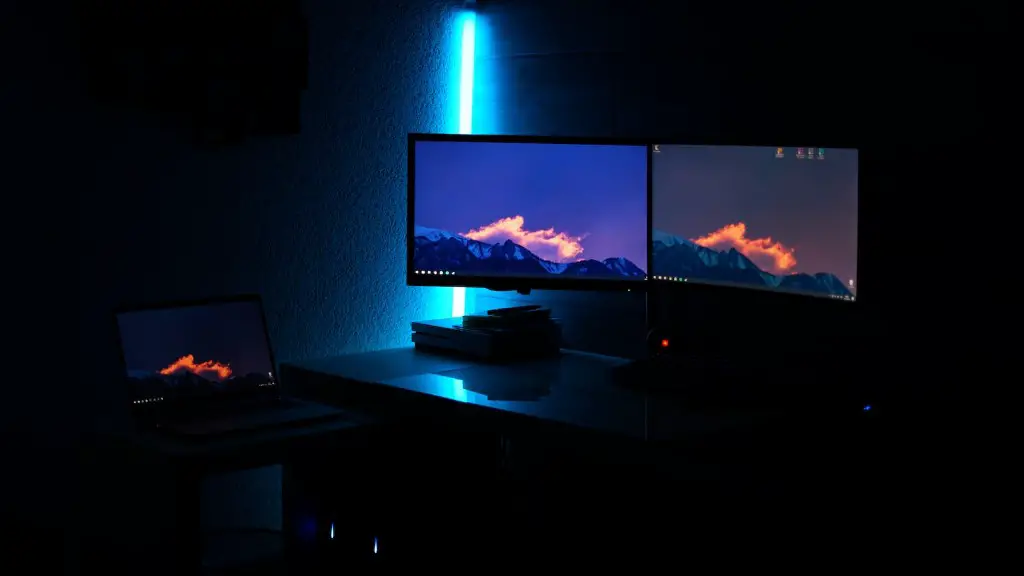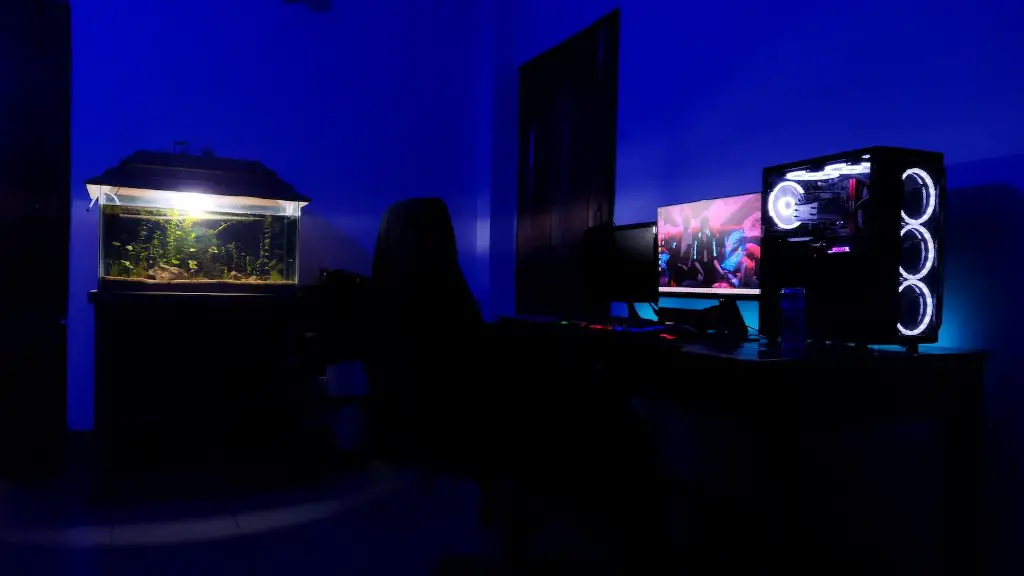Purchasing a gaming PC can be a daunting task for the uninitiated. That said, it doesn’t have to be: with a few simple pointers, anyone can be fully equipped to get the gaming PC of their dreams with ease. Here’s how to purchase a gaming PC:
First, do your research. There are many online resources for research about what type of PC is best for your needs, what components you should aim to have, and how price and performance interact. Additionally, asking a more tech-savvy friend or relative can be helpful – the more information you can gather, the better informed decisions you can make.
Second, make a budget. Figure out roughly how much money you are willing to spend, as setting a budget helps you narrow down your selection process quickly and easily. Additionally, there are often deals, sales, and discounts available online, so it pays to shop around.
Third, decide what matters most to you. Consider what components are most important for your desired gaming experience; for instance, does a fast processor and lots of RAM matter to you more than a super-fast graphics card? Oftentimes, it pays to balance these components and know when to cut corners.
Fourth, pick out a storage option. Avoid going for the cheapest option here, as cheaper storage components can be slower and cause lag. If you can, go for an SSD (Solid State Drive), or choose a high-capacity hard-disk drive instead.
Fifth, pick out your peripherals. You may already have these purchased, or consider buying a monitor, mouse, and keyboard, preferably with high response rates, to get the best gaming experience.
Finally, purchase the PC. With all the information you have gathered, you will know what type and components you need, what your budget should be, and which peripherals you need. Armed with this information, you are fully equipped to purchase the gaming PC of your dreams, no matter what budget you have.
Understanding Hardware Specifications
When it comes to picking out a gaming PC, one of the most important things is understanding the hardware specifications. Knowing the technical details opens the door to a much more informed buying decision. You should be particularly aware of the processor, RAM, graphics card, power supply, storage, and peripherals.
The processor is probably the most important part of the PC, as this is the element that decides how quickly the PC performs calculations. A good processor will make a huge difference to not only gaming, but also other tasks, as faster processors speed up data processing. When picking out a processor, you should check its speed, as measured in GHz, and its core count, as this is a measure of power.
RAM (Random Access Memory) is also important, as it can store processes that the processor is working on. The more RAM the better, as the general rule here is that more RAM equals more performance. Finally, the graphics card is a powerful component whose aim is to produce images. Special graphic cards are made to better handle certain games, so bear this in mind when choosing one.
When it comes to power supply, opt for a good quality one as this is what makes sure that your PC receives the correct amount of power. Next, storage components should be selected based on size and speed, to make sure that you don’t experience lag when playing games. Last but not least, test any peripherals before buying, as response rate is an important factor for gaming.
Comparing Prices & Assembling A System
Once you have picked out the components, the next step is comparing prices. It pays to shop around, as prices can be vastly different depending on where you purchase. Online retailers and physical stores both stock gaming PCs, and sometimes you can get discounted prices from the latter if you don’t mind waiting a little. Furthermore, there are often discounts and promotions available, so searching for these can help save money.
After you’ve compared prices for the components and peripherals, the final step is assembling the PC. This can be a difficult task for the uninitiated, but luckily there are many online tutorials out there. These can be a great resource, as you can find the specific instructions for your hardware. Alternatively, you can opt to purchase the gaming PC from a local retailer, and they will assemble it for you.
Whichever route you choose, be sure to test everything once the system is up and running. This should take a few minutes, and it is important to make sure that everything is in working order. Check all the peripherals, as well as the disc drive and any other features. This will be the last step towards a perfect gaming experience.
Paying Wisely & Setting It Up
Once you’ve assembled and tested out the PC, the next step is paying for your new gaming monster. This is when you need to be particularly money-savvy: if possible, use a credit card to pay for the PC, as most credit card companies offer insurance in case something goes wrong. Additionally, search for any discounts or rewards, such as cash-backs or bonus points, to make the most out of your purchase.
The final step is setting up the PC. This will involve installing drivers, cleaning the case, and changing any settings. Make sure to use anti-static measures when installing drivers: static electricity can cause major damage and ruin the PC, so having an anti-static wristband is ideal. Additionally, don’t forget to clean the case, as dust can build up quickly and cause major damage, as well as being a source of inflammation. Last but not least, it may be worth changing the settings of the PC, such as the fan speeds and power savings, to ensure that it runs at optimal performance.
Choosing The Right Store & Freebies
Picking the right store when shopping for a gaming PC is incredibly important. The best store will be reliable and offer good customer service and knowledge of gaming PCs. Ideally, the retailer should also have good after-sales service, as finding a reliable technician to service your PC can be difficult. With these considerations in mind, you should be able to find a great source for purchasing a gaming PC.
Don’t forget to check stores for any freebies or bundles. Most gaming PCs give extra accessories, such as mousepads, special gaming mice, and even games. These extras can be a great addition to the gaming experience, especially if they are added in for free. Pay attention to details like these when shopping for a gaming PC, as they can save you some money in the long run.
Verify Refund Policies & Setting Up Accounts
Before completing the purchase, be sure to check the refund policy as well. Some retailers offer a money-back guarantee for a set period, which gives you the safety of being able to return the PC if something goes wrong – or within a given time frame if you change your mind. Additionally, recently-purchased PCs may be given a warranty from the manufacturer, so make sure to check the terms if this applies to you.
One final tip is to set up accounts with various gaming services, such as Steam and Uplay. Having accounts on these platforms allows you access to the vast selection of games available on them. Furthermore, most of these platforms often have discounts and bundles, allowing you to further expand your gaming library. It’s a good idea to do this before completing your purchase of the PC, as the accounts will be ready to go when you get the system.




